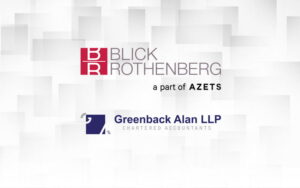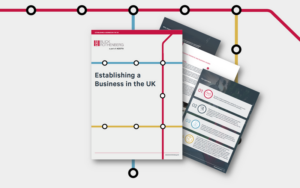Will there be fireworks or rabbits on Spring Budget Day?
With Prime Minister Rishi Sunak keeping his General Election cards close to his chest, it remains to be seen if Chancellor Jeremy Hunt’s Budget on 6 March will ‘play it safe’ or set off some fireworks.

So far under Sunak and Hunt's short tenure, they have ultimately played it safe, with the Conservative Government still healing from the scars of Liz Truss’ ill-fated Mini-Budget in 2022
Last November’s Autumn Statement pledge to cut National Insurance by 2% was met with muted celebration, despite the measure costing an eye-watering £50 billion.
February’s mountain of economic data would suggest another ‘safe’ Budget statement from the Chancellor – inflation remains stuck at 4%, the UK entered into a technical recession in the last 6 months of 2023 (but it has probably already recovered) and the Bank of England is showing no imminent signs of an interest rate cut. The fiscal headroom has been downgraded to £13bn, and the PR message from number 11 is markedly more sombre when it comes to tax cuts than it was at the turn of the year. But Messrs Sunak and Hunt know the political clock is ticking fast, and two by-election wipeouts in February suggest drastic action is needed at the Budget.
If I was a betting man (which I am definitely not), I expect Jeremy Hunt to play it safe again. A 2% basic rate Income Tax cut seems to be the favoured option and would cost the Treasury £13bn. The Chancellor would be placing all his fiscal headroom chips on this single measure, leaving little room for manoeuvre to address the other fundamental failings in our personal tax system. The Government will point towards a 4% tax cut for workers in the 2024 General Election year; but the Chancellor will be silent on frozen allowances until 2028 and fiscal drag over the last 14 years. The effect of frozen allowances is the same as a 6% increase in basic rate Income Tax, and 6 million people now suffer 40% higher rate Income Tax – up from 3.8m in 2019.
A further (or more likely alternative) Income Tax giveaway would be to increase the higher rate tax threshold to £60,000, representing a saving of up to £2,000. Alongside that immediate giveaway they should sign-post a future increase to the higher rate threshold to £100,000 by the end of the next Parliament, if the Conservatives are re-elected. The Government will want to target the votes of the so-called ‘squeezed middle’ and reducing the burden of 40% Income Tax would be appealing.
It seems highly unlikely that there will be any changes to Inheritance Tax, which is apparently Britain’s most hated tax. Abolishing Inheritance Tax was strongly trailed before the Autumn Statement, but the plans were shelved and there has been little mention since. The Government may want to use the Budget to pre-announce a future cut to Inheritance Tax if they are re-elected – halving the headline rate to 20% has been previously suggested. Government officials are probably more precious around Inheritance Tax, as the tax take has steadily increased, and is projected to raise £8.4bn by 2028. In the theme of ‘playing it safe’, the Government will also be sensitive to Labour’s rebuttal that any change to Inheritance Tax is a tax cut for the wealthy. A more progressive approach from a tax reforming Chancellor would be to overhaul the current regime and there is an argument to replace Inheritance Tax with a form of capital gains tax on death.
A key cornerstone of the Labour opposition’s tax proposals would be to abolish the ‘non-dom’ tax regime. Labour claim this would raise £3.2bn and the proceeds used to pay for an additional 7,500 doctors and 10,000 nurses and midwives. Jeremy Hunt has been against any dramatic moves, and has suggested abolishing the non-dom tax regime would end up costing the UK economy £8 billion. Tactically, the Chancellor might want to use the Budget statement to announce a consultation review of the non-dom tax regime, as pre-emptive action to take the sting out of one of Labour’s key tax pledges. Although it’s highly unlikely, Jeremy Hunt could announce a shortening of the period that a non-dom can benefit from the regime from the current 15 years to, say, 10 years.
Imagine for a moment you were Jeremy Hunt on Budget Day and you didn’t play it safe – there are fundamental structural issues with our personal tax system and any fiscal headroom should be used to urgently address these deficiencies:
- Abolish the High Income Child Benefit charge, where a family starts to lose their entitlement to child benefit when one of the couple earns more than £50,000
- Remove the £100,000 cliff-edge where you lose your entitlement to tax-free childcare
- Reinstate the personal allowance for everyone, thus removing the 62% effective rate of tax on earnings between £100,000 and £125,140
- Abolish the tapered £60,000 pensions annual allowance when you have adjusted income of more than £260,000, and
- Most importantly, cancel frozen tax allowances and thresholds and enshrine in legislation to increase these in line annually with inflation.
The above measures are probably deemed politically unattractive as they would not grab any major headlines versus a cut to the headline rate of Income Tax.
If Sunak and Hunt were to go from defence to attack, they would abolish the 45% additional rate of Income Tax – citing a major tax cut with fiscal responsibility. Such a measure would offer a clear divide with the Labour opposition, who would be compelled to reinstate the rate if elected into Government and would immediately step into the firing line as a Government that raises taxes. It would certainly be a high risk ‘roll of the dice’ to bury the ghost of the Truss/Kwarteng Mini-Budget and offer the public a route to future tax cuts. I think it’s safe to say that this can be firmly ruled out.
Would you like to know more?
If you would like to discuss the above and how it may impact you, please get in touch with your usual Blick Rothenberg contact or Nimesh Shah using the form below.
Contact Nimesh
Spring Budget 2024

The Government should announce the relaxing of VAT rules on energy saving materials in the Budget












